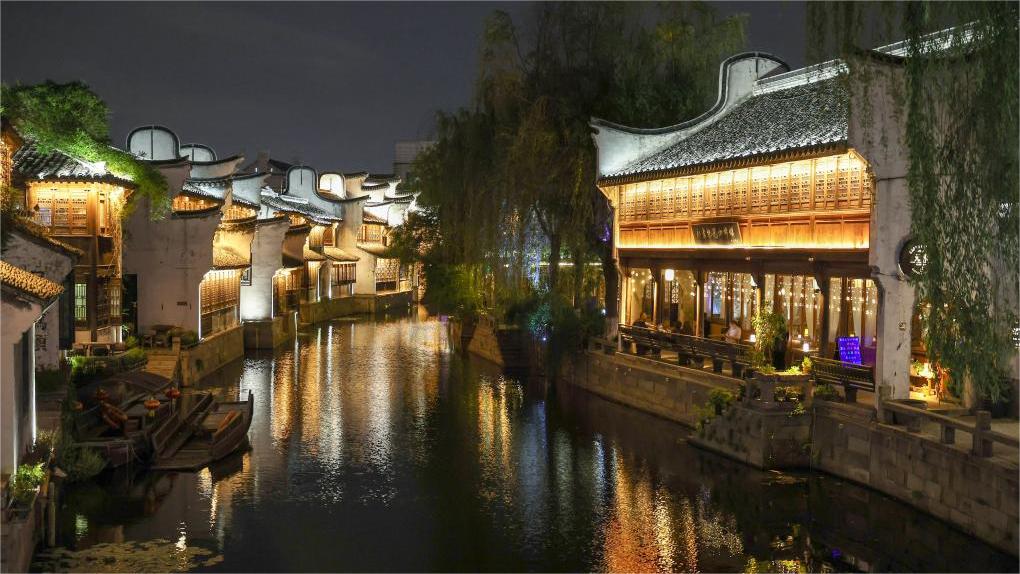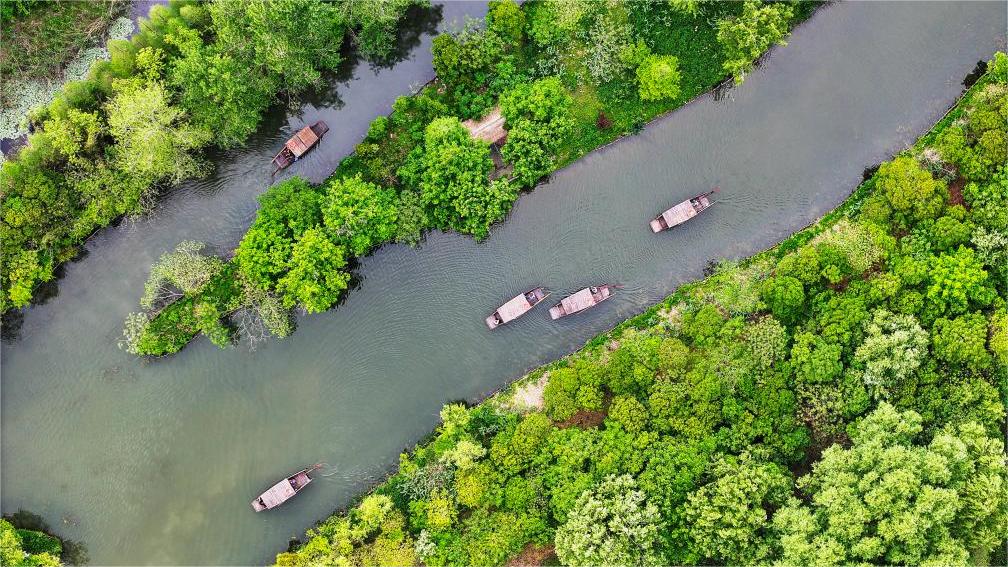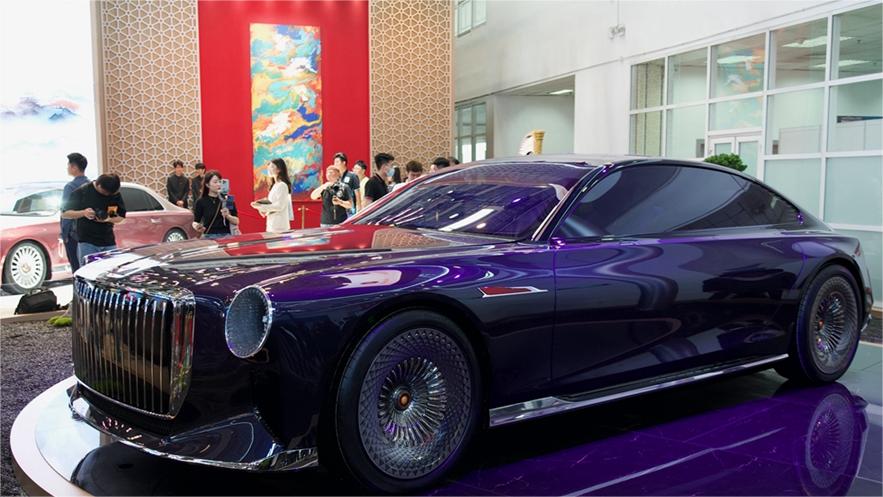China makes more efforts to recycle power batteries
As one of the world's largest power battery markets for eight consecutive years, China has established a power battery industrial system with the most extensive industrial and supply chains.
Large-scale production comes with the challenge of managing decommissioned power batteries. Recently, People's Daily reporters tracked a batch of retired batteries in Wuhan and Jingmen, two cities in central China's Hubei province, to see how these batteries are recycled and given a new lease on life.
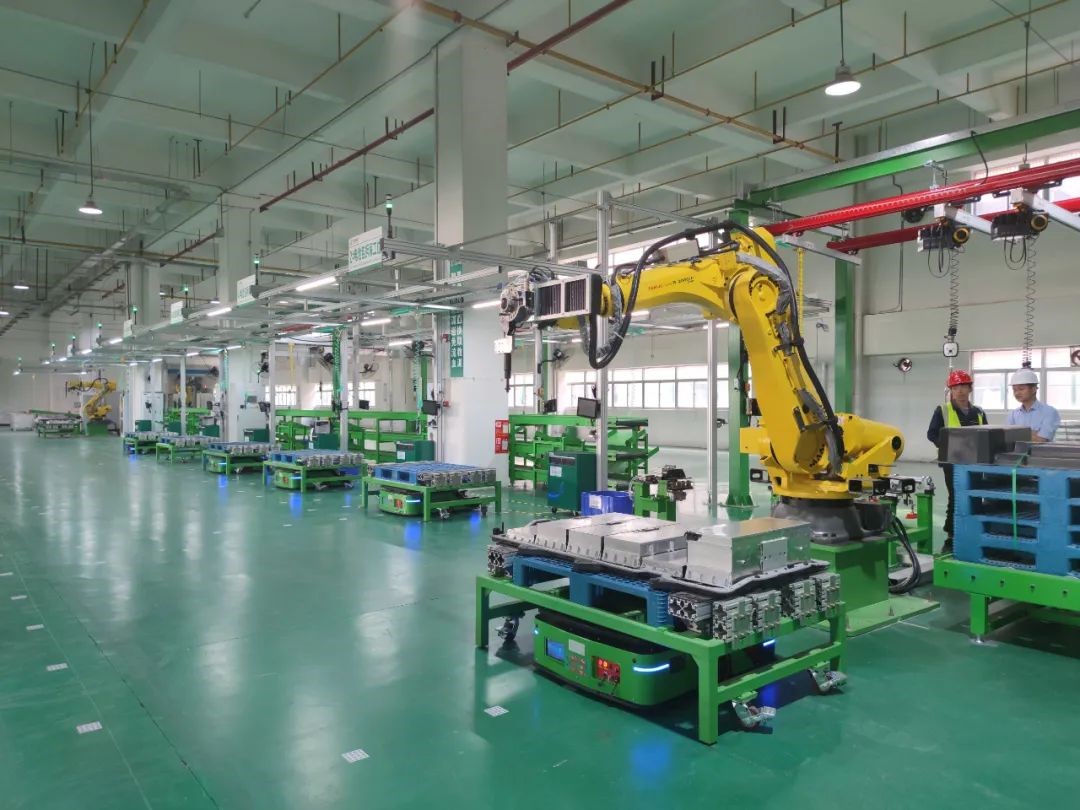
Power batteries are disassembled in a workshop of GEM Co., Ltd. (Photo from the official account of GEM Co., Ltd. on WeChat)
A ride-sharing platform in Wuhan recently reached battery recycling specialists of GEM Co., Ltd. (GEM), a leading enterprise in China's circular economy based in Shenzhen, to collect power batteries of several new energy vehicles (NEVs) whose capacity had degraded due to intensive usage.
The next day, the batteries were removed from vehicles and wrapped in insulating membranes by battery recycling specialists, and then shipped to GEM's Wuhan facility.
At GEM's facility, the batteries were sent to a workshop where their capacities were tested by automated equipment.
"Batteries with higher capacity will be repurposed in Wuhan, while those with severe capacity loss will be sent to our Jingmen facility for processing," said Bie Chuanyu, deputy head of GEM Green Industry (Wuhan) Innovation Research Institute.
GEM recycles approximately a tenth of the decommissioned power batteries across China. Having previously focused on recycling end-of-life vehicles, the company has forged strong partnerships with numerous automakers. Today, in response to the development of the NEV industry, the company has shifted its focus to recycle retired power batteries.
Apart from old power batteries, the recyclable materials also consist of waste materials that did not undergo cell assembly during battery production.
Not far from GEM's Jingmen facility lies a factory of EVE Power, a battery manufacturer, where new lithium batteries were rolling off the production line.
The factory was invested and built by EVE Energy Co., Ltd. based in Huizhou, south China's Guangdong province, one of the leading manufacturers of lithium batteries in China. It has grown into the largest power and energy storage battery production base in central China.
Driven by this industrial leader, nearly 100 companies have clustered together, forming an integrated power battery industrial chain.
It is reported that GEM has signed a strategic cooperation agreement with EVE Energy, exclusively recycling waste materials from EVE Power. It will process them into raw materials for battery production and return them to the battery factory. This recycling model is known as the "waste-for-raw-materials" approach.
Recycling is just the first step, and there's much to do with repurposing retired power batteries.
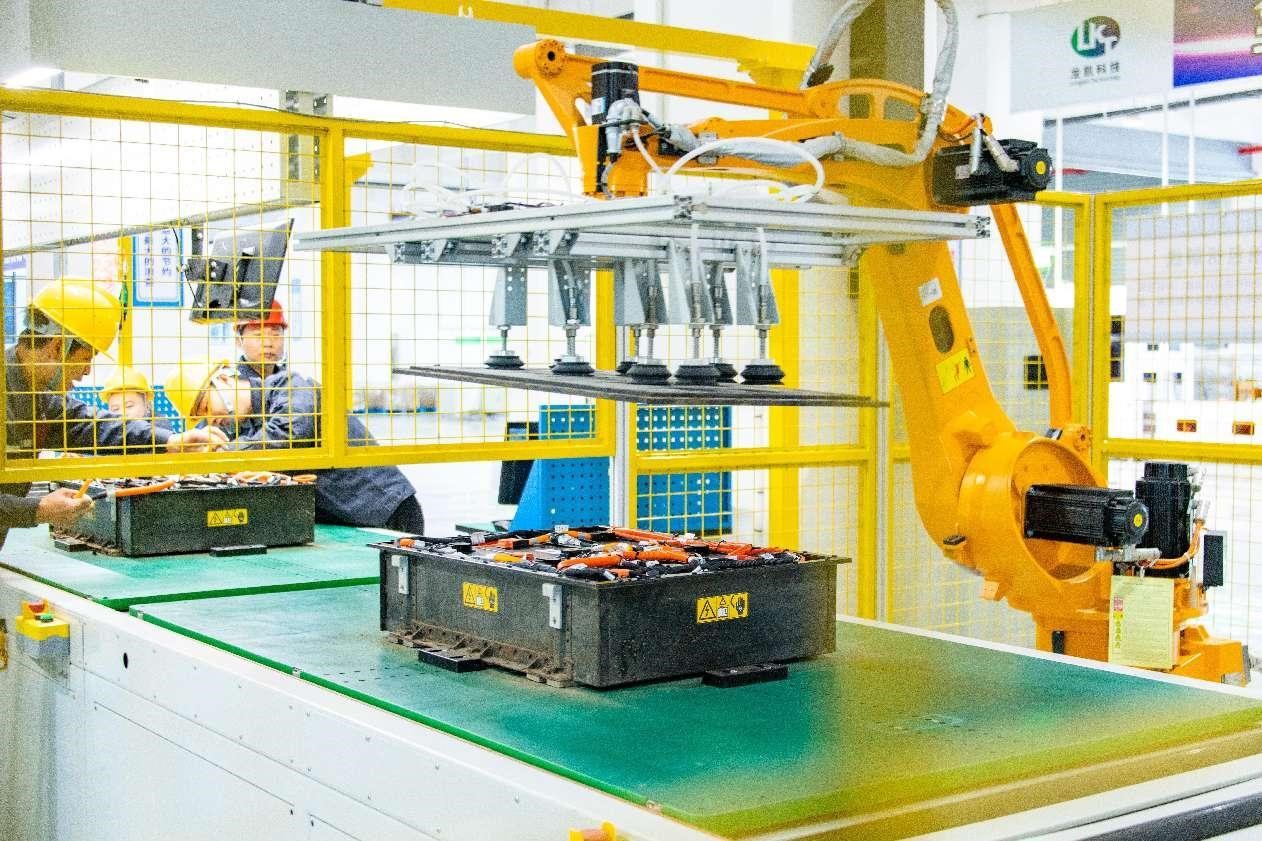
Decommissioned lithium batteries are disassembled in a workshop of a tech firm in Dingnan county, Ganzhou, east China's Jiangxi province. (People's Daily Online/Zhong Jie)
In a power battery cascading utilization factory of GEM's Wuhan facility, batteries with higher remaining capacity were sent to workstations and disassembled to modules and cells, which were then transported to production lines by automated guided vehicles. The cells would be recombined and made into household energy storage cabinets.
According to an employee of the factory, though some decommissioned power batteries are no longer capable of propelling vehicles, they can be repurposed for electric bikes, telecommunications base stations, energy storage cabinets, and solar-powered street lamps after undergoing disassembly and restructuring.
Near the GEM Wuhan facility's parking lot, there are several energy storage cabinets for commercial and industrial use. "Each cabinet is composed of several dozen repurposed power battery packs and can generally be used for 8 to 10 years," Bie said.
Even batteries with severely degraded capacity can be recycled by recovering valuable metals like lithium, cobalt, and nickel for future battery production. Every one percentage point increase in the lithium recovery rate can directly raise the recycling value of each ton of retired power batteries by thousands of yuan.
In addition to collaborating with third-party recycling and processing organizations, some automakers have also begun to establish their own battery recycling businesses.
In a workshop of an industrial park of Dongfeng Hongtai Holdings Group Co., Ltd. in Wuhan, electric forklifts powered by recycled batteries were zipping around.
"These cascading utilization batteries are lighter, more powerful, and have longer range compared to traditional lead-acid batteries. A single charge allows for 8 hours of operation," an employee said.
According to an executive of Dongfeng Hongtai Holdings Group Co., Ltd., a subsidiary of Chinese automaker Dongfeng Motor Corporation, automakers have more precise information about battery conditions than third-party recyclers.
"With the retirement of large volumes of power batteries, the costs of developing and using cascading utilization products are expected to decrease significantly," the executive noted.
According to China's Ministry of Industry and Information Technology, the country has built over 10,000 service outlets for power battery recycling. Last year, 225,000 tons of decommissioned NEV power batteries were recycled.
A research institution predicted that the number of China's retired power batteries will reach 820,000 tons by 2025. According to a plan for the green development of China's industrial sectors during the 14th Five-Year Plan period (2021-2025), China will establish a relatively comprehensive power battery recycling and utilization system by 2025. This means a growing number of retired power batteries will be directed towards recycling and reutilization in the country.
Photos
Related Stories
- Chinese researchers develop high-energy-density aqueous battery
- Chinese scientists fabricate wearable batteries that can charge cellphone
- China's battery giant CATL reports robust profits in 2023
- China's installed capacity of power batteries grows in Jan-Feb
- A glimpse of BYD battery factory in Manaus, Brazil
Copyright © 2024 People's Daily Online. All Rights Reserved.







